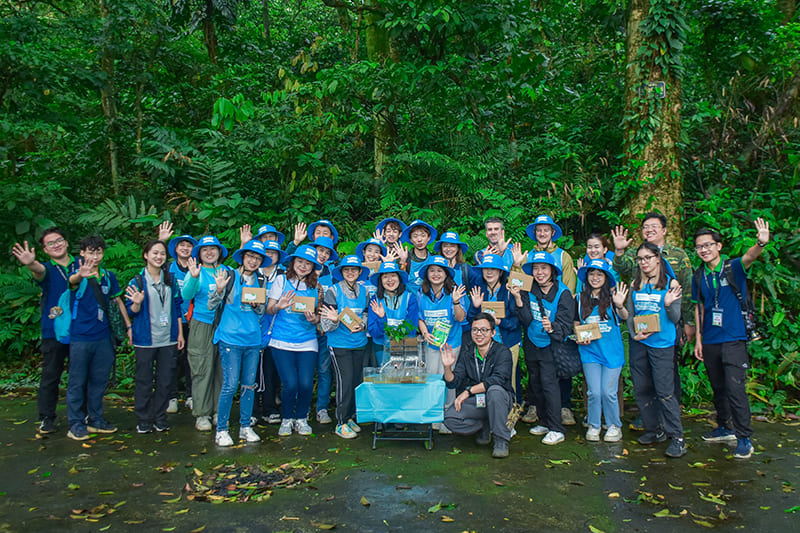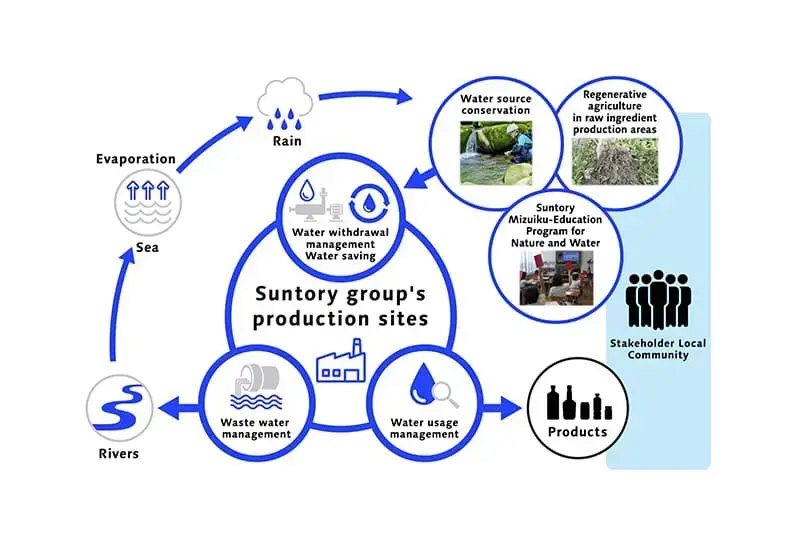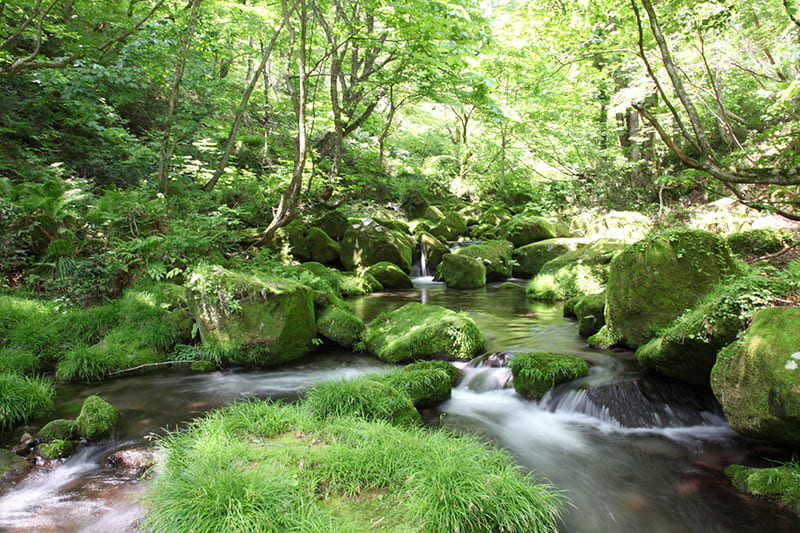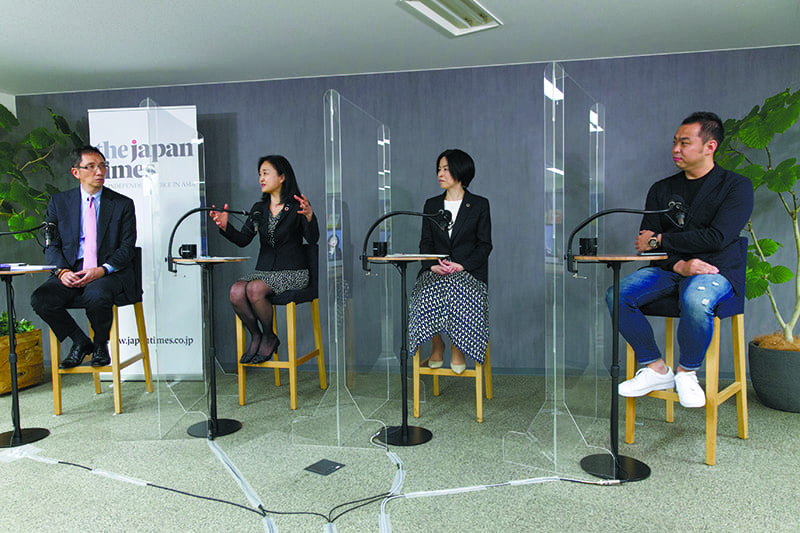December 02, 2022
Suntory restores healthy forests to recharge clean natural water
SPONSORED CONTENT
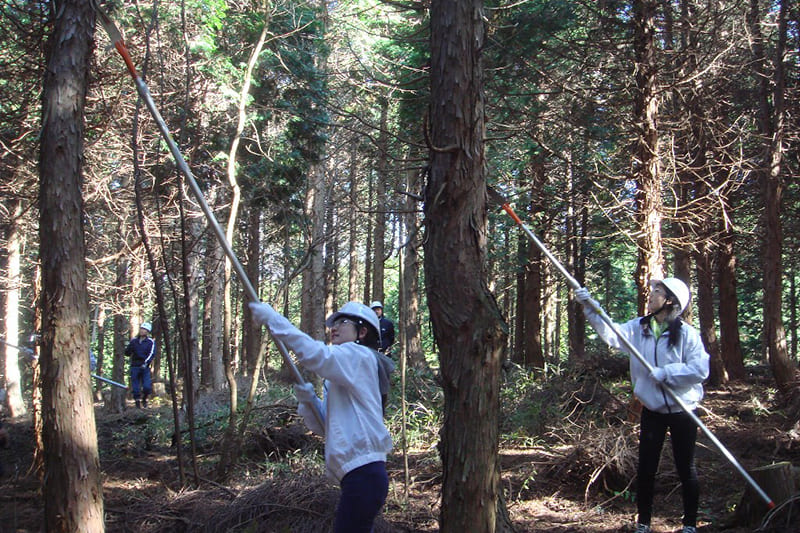
“Today Birds, Tomorrow Humans.” This is the slogan created by Japanese beverage giant Suntory Holdings when it started bird conservation activities in 1973. It indicates that various environmental risks affecting wildlife will come to hurt people as well. The company initially established a bird sanctuary at the Suntory Hakushu Distillery in Yamanashi Prefecture and published its first newspaper ad advocating the importance of conserving nature, with an illustration of wild birds. That was followed by a series of more than 100 ads published across different newspapers. In an era of rapid economic growth, the industry-leading company’s running of ads that didn’t tout its products at all gained plenty of attention and received the Asahi Advertising Award.
Instead of using its profits only to expand and improve its business, Suntory follows a corporate value of “Giving back to society,” part of its ethos since Shinjiro Torii founded the company in 1899. Society cannot exist without the blessings the natural environment provides. “Especially for us, no natural water means no business. Our founder and predecessors knew that from the start,” said Shigeaki Kazama, executive officer and deputy division COO of the Sustainability Management Division. He explained that this outlook is what made the publication of such forward-thinking ads possible almost 50 years ago.

In 1989, the company established the Suntory Fund for Bird Conservation. It has granted a total of more than ¥620 million (currently $4.5 million) to 472 organizations, producing remarkable results including the recovery of red-listed birds such as Japanese wild geese, Okinawa rails, grey-faced buzzards and oriental white storks. “It takes long-term efforts to make any achievements in this kind of conservation. We should not let them give up just because they are short of funds to continue their efforts. Our intention is to support various organizations until they take off and get on track to achieve their goals,” Kazama said.
The Japanese Association for Wild Geese Protection is one of the organizations that have received the grants. Migratory birds that went locally extinct decades ago are coming back to Japan as a result of joint Japan-Russia efforts led by the organization to conduct research and to raise and release the birds. The director of the organization, Masayuki Kurechi, received two honorable awards this year: the Yamashina Yoshimaro Award, which recognizes contributions to ornithology research and bird conservation in Japan, and the Ramsar Wetland Conservation Award, which honors achievements in promoting the conservation and wise use of wetlands globally.
The fund launched a global program in 2021 to accept applications from overseas bird conservation organizations. “There are no borders for wild animals, especially birds,” Kazama said. He stressed the importance of taking collaborative and holistic approaches in the conservation of birds and their habitats. Suntory goes beyond providing financial support to those who engage in bird conservation activities. It runs the Japanese Bird Encyclopedia website, which introduces over 200 species of wild birds through illustrations, photographs, explanations and audio samples of bird calls. The company is also a main sponsor of eBird Japan, an application that allows users to not only search for information on birds but to add data such as what birds they observed, and when and where. eBird is among the world’s largest biodiversity-related science projects, with an enormous database on birds developed by the Cornell Lab of Ornithology at Cornell University in the United States. By sharing information on birds through these efforts, Suntory aims to raise awareness about the importance of protecting birds and environments in which diverse wildlife can live.
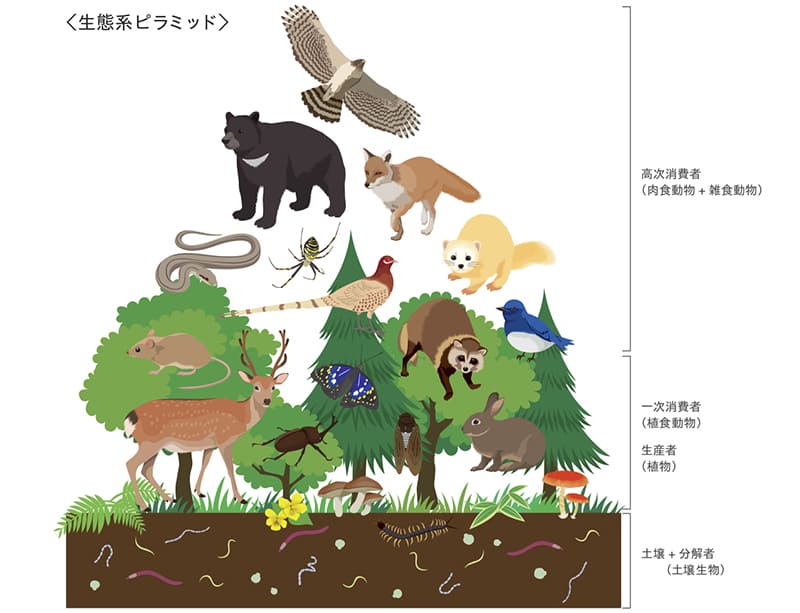
Suntory’s bird conservation activities are also in sync with its Natural Water Sanctuary Initiative, launched in 2003 to conserve forests in 21 locations across the nation and improve their ability to recharge water resources. Suntory is now cultivating more than twice the amount of groundwater that its production facilities actually use.

“To improve the water-recharging capability of forests, the balance of all the wildlife, including animals and plants, needs to be regained,” Kazama said. He explained that forest management, including thinning and pruning, is necessary to maintain an adequate amount of sunlight streaming through trees, keeping not only the trees but also the whole ecosystem healthy.
Forest management also contributes to preserving apex predators like large raptors. When initiatives began in the Natural Water Sanctuary Northern Alps in Nagano Prefecture, traces were found of goshawks but the birds themselves were nowhere to be seen. “Hawks tend to fly low among trees when they are trying to find places to build their nests. If trees are too dense, they cannot fly low,” said Kazama. He explained that they cut down some trees to make room for goshawks to fly, and that the thinning was also good for the forest and its biodiversity. In two years, they confirmed that the birds had returned and were using nests placed by the conservation team. “Large raptorial birds sit at the top of the biodiversity pyramid of a forest. They are a barometer of the forest’s health,” Kazama said.
Suntory is a member of the Sustainable Japan Network, a group of companies that cooperate with this newspaper in spreading information about sustainability in Japan. You can also be part of the network; for more details, please visit https://sustainable.japantimes.com/sjnetwork-en

